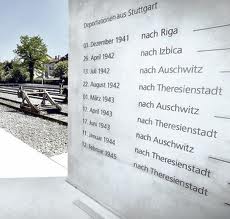One of the great things about living near Manchester is that
we have some fabulous Christmas markets. Some people don’t like them and I’ll
admit I prefer to go on the quieter days of the week – Monday, Tuesday
Wednesday. There’s still a buzz and there’s still plenty to see.
We have local crafts people, local producers of fine foods,
and plenty of representation from France, Germany, the Netherlands, Spain and
Italy.
We have our own personal shopping list: some nice soaps (usually
form one of the French vendors – France takes up most of whole street), some Dutch cheeses, maybe a
selection of cold meats form one of the
German stalls, a large tub of mixed olives and picked garlic, some Turkish
delight, some of that delicious Italian nougat
/ truffle / fudge. We snap up of course also a Glühwein, and maybe a Bratwurst
and some pancakes or poffertjes (Dutch mini pancakes). Chocolate generally comes
into the equation as well. We also buy a selection of Dutch biscuits and of
course we must have our Stollen and Lebkuchen.
Except that this year we couldn’t find the latter. There was no Stollen and there were no Lebkuchen
anywhere on the Christmas markets. There was a stall selling hot Strudel of all
kinds, but this was more street food than a chance to catch up on your
Christmas shopping.
Was this the beginning of Brexit? Or was it simply that the
German vendor who normally brought them didn’t think that they sold too well in
England? I asked around a little at the other German stalls and no one could
shed any light on this.
Lebkuchen is impossible to make at home and Stollen is difficult.
Mind you, Tesco’s own Stollen isn’t bad.
We eventually bought a nice Stollen at the renowned
Westmoreland Farm Shop at the Tebay services on the M6. We obtained some Lebkuchen
fresh from Nuremberg at a branch delicatessen in the Lake District.
But was the absence of these items at the Christmas markets
a sign of what is to come post Brexit? Will it be worth their while coming if
there is no Free Trade agreement? Will they be able to come if there is no free
movement?
Maybe the Stollen we bought form the farm shop is symbolic
of all that is good about having close ties to the EU. It was the best Stollen I’ve ever had and it
was made in England. It has improved on the original German recipe. That is
what exchange and interaction is all about. Think also of balti, spaghetti
hoops and pizza.
At the Christmas markets I ended up buying a tipsy cake. The
fruit was soaked in gin. It was gorgeous and was made on an English farm.
Fantastic. But it shouldn’t mean that we have to give up our Stollen.

